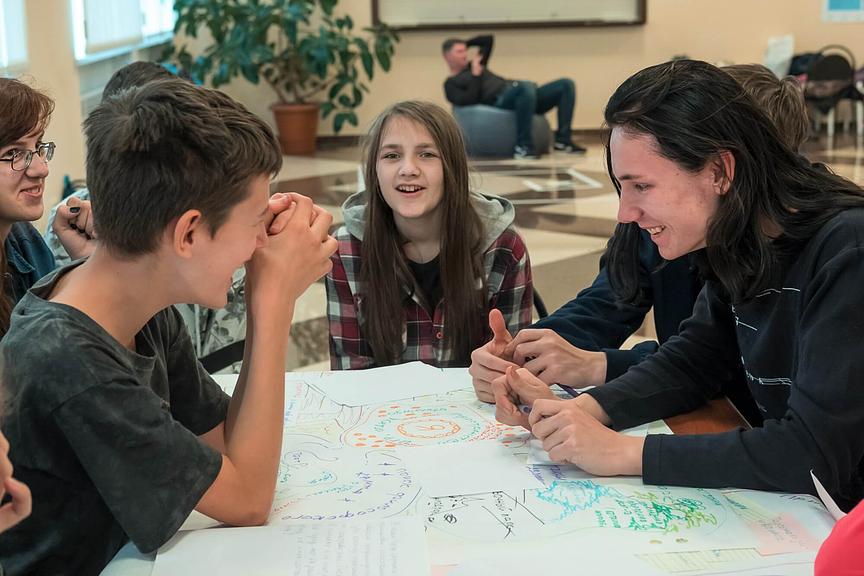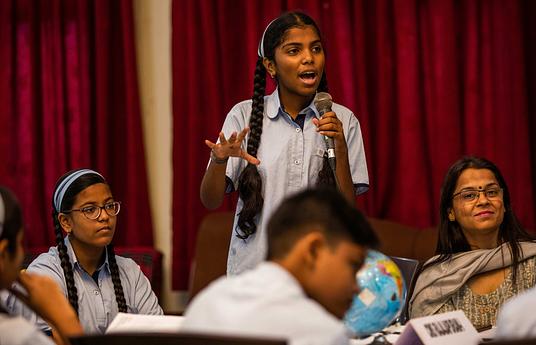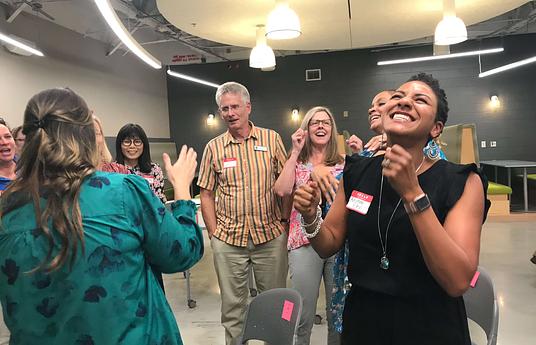There's no equal intergenerational dialogue between educational process participants, so parents, teachers and students have no no coherent future vision, which could allow them to collectively develop their schools together. I created a collective thinking technology starting with desired future co-imagining and ending up in cooperatively deisgned school strategy, where all can act as co-authors.
1. We start from the desirable future, than think of what people are doing to create this future, than of what skills they need to act in such ways, and finally - how we can learn these skills and prototype this future by our own way of living. This tip has a great empowering effect.
2. We end up with certain initiatives and groups of responsible people behind them. This helps to start real changes in schools.
3. Labs method, based on "every point of view has equal value" principle, allows parents to enter schools and to start participating in schools' life, to increase their influence and agency in schools conflict-free. This also allows students to be heard by grown-ups.
4. As working groups for labs are divided according to "social role", and then they share their ideas, elders and youngsters receive a solid ground for co-creation based on common ideas. We use "search for likeness, not for difference" principle, which allows the participants to stop arguing and start cooperating.
Laboratories have been conducted since 2016. In January-March 2019, the Wave of laboratories swept through about 30 cities in Russia, Belarus, Latvia, Uzbekistan, totally organized by independent teams of volunteers consisting of people who need to make education a platform for co-creation and cooperation of all stakeholders. The laboratories became a meeting point of active citizens - parents, students, entrepreneurs, administratives, and a place of horizontal value-based dialogue about the desirable future and the future of education.
In 2020, we've got support from the fund "Education for society" and RANEPA, and started a second wave among state schools, aiming to unite school communities and to engage parents and students in co-creation of their schools' development strategies.
A manual for host and facilitators on how to conduct a CLL session is here: https://drive.google.com/file/d/1r8zP3E-zMd9_3GiMCfOUb8fvG0sMuI_K/view?usp=sharing



